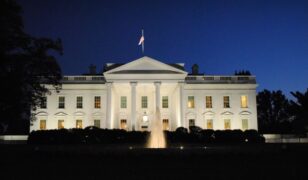IC releases final set of declassified Tet Offensive documents

On May 1, the Intelligence Community has published, via Intelligence.gov, a third and final installment of declassified documents relating to the IC’s role in the Vietnam War’s Tet Offensive, highlighting material from the Central Intelligence Agency, National Geospatial-Intelligence Agency, Defense Intelligence Agency and National Security Agency.
On January 4, 2018, in recognition of the 50th anniversary of the Vietnam War’s Tet Offensive, Director of National Intelligence Daniel R. Coats directed intelligence agencies to review their holdings for historical material of current interest relating to the IC’s role in the Tet Offensive. In addition to the material released today, two previous installments of responsive records were published in July 2018, and January 2019, per DNI Coat’s directive.
Intelligence.gov has served as the hub for information on the progress of the Tet Offensive document declassification throughout the release process and provides access to original records sourced from across the IC, as well as rich digital media that provides context and insight into these materials as well as the Tet Offensive, more broadly.
About the Transparency Initiative
Efforts to declassify historical information of current relevance are rooted in the IC’s 2015 Transparency Implementation Plan for the Principles of Intelligence Transparency, published on October 27, 2015. The plan identifies transparency priorities and translates the principles into concrete, measurable initiatives.
About the Tet Offensive
The Tet Offensive was a series of surprise attacks launched by the North Vietnamese Army and the Viet Cong on January 30, 1968, throughout South Vietnam that targeted multiple prominent sites, including the Presidential Palace and the U.S. Embassy in Saigon.
While the attacks initially took the U.S. and South Vietnamese forces by surprise, they eventually recovered to repel the Viet Cong. The dramatic nature of the Tet Offensive began to turn U.S. public opinion against the war and precipitated the U.S. withdrawal from Vietnam.
Source: ODNI







